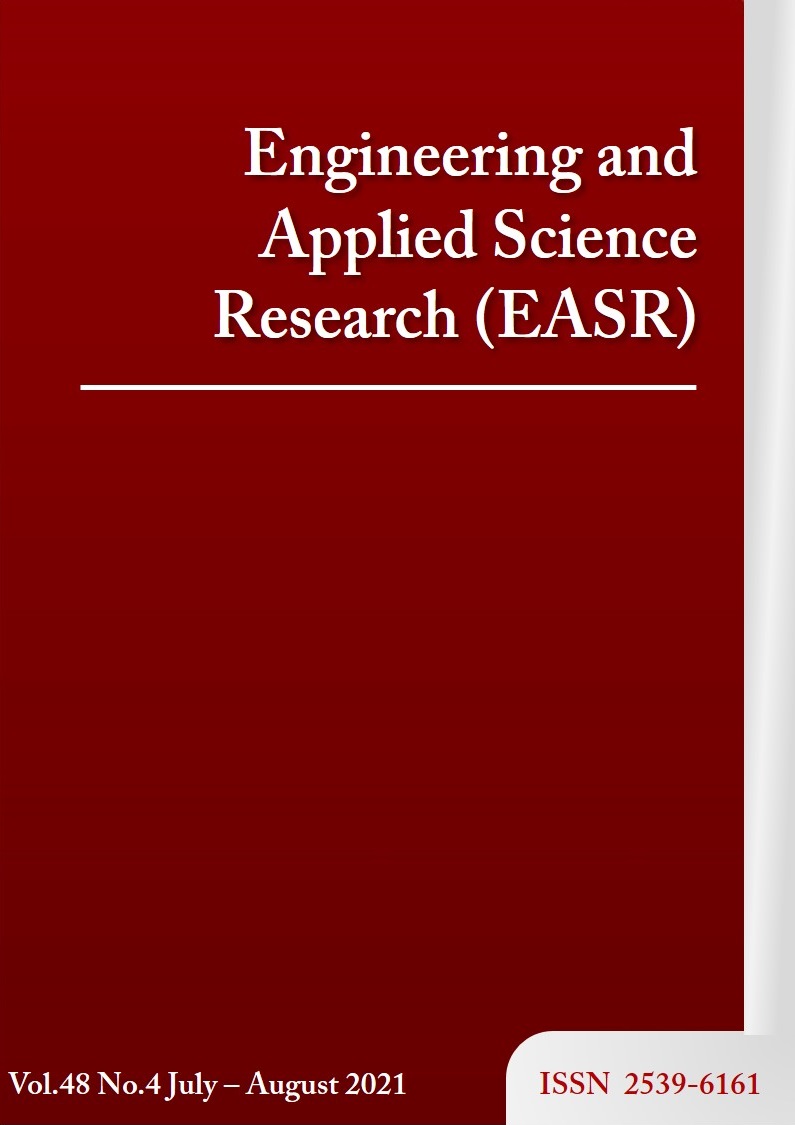Exploring determinants of travel-mode choice during the covid-19 pandemic outbreak: A case study of Islamabad, Pakistan
Main Article Content
Abstract
The COVID-19 outbreak is changing the patterns in travel activity for key destinations. Travel behavior during the pandemic has not been investigated adequately, specifically in developing countries. A sound understanding of travel-mode choice determinants is needed to design interventions to slow down and prevent the spread of the COVID-19 disease. This study explores travel-mode choice determinants for three key destinations, the workplace, market, and hospital, in Islamabad, Pakistan, during the COVID-19 disease outbreak. This study used a primary dataset of 163 observations and applied the multinomial logit (MNL) regression to analyze it. The survey results highlighted that the proportion of public transport mode was marginal for the three key destinations because public transport was closed during the lockdown, except for the metro bus. The streamlined model estimation results implied that the family-size factor had no relationship with the travel-mode choice. Males were most likely to travel to the workplace and market by 2&3 wheelers and least likely to travel by car. Females, unemployed persons, and students are likely to stay at home. Married people were more likely than single people to travel to the workplace and hospital by car. Self-employed people and state officials/public servants were most likely to go to the market by car. People living in towns/rural areas and cities were likely to travel by motorcycle/rickshaw and car, respectively. People living farther than 5 km from the workplace were most likely to travel by car, followed by motorcycle. This study is important for designing strategies to curb the pandemic with sustainable mobility during the lockdown.
Article Details
This work is licensed under a Creative Commons Attribution-NonCommercial-NoDerivatives 4.0 International License.
References
WHO (World Health Organization). Coronavirus disease (COVID-19) Pandemic [Internet]. 2020 [cited 2020 Apr 4]. Available from: https://www.who.int/emergencies/diseases/novel-coronavirus-2019.
WHO (World Health Organization). Q&A on coronaviruses (COVID-19) [Internet]. 2020. [cited 2020 Apr 25]. Available from: https://www.who.int/news-room/q-a-detail/q-a-coronaviruses.
WHO (World Health Organization). Coronavirus disease (COVID-19) Pandemic [Internet]. 2020. [cited 2020 Apr 25]. Available from: https://www.who.int/emergencies/diseases/novel-coronavirus-2019.
Worldometer. COVID-19 Coronavirus Pandemic [Internet]. 2020. [cited 2020 Apr 25]. Available from: https://www.worldometers.info/coronavirus/.
Worldometer. COVID-19 Coronavirus Pandemic [Internet]. 2020. [cited 2020 Apr 27]. Available from: https://www.worldometers.info/coronavirus/.
Government of Pakistan. Important Precautions [Internet]. 2020. [cited 2020 Apr 29]. Available from: http://covid.gov.pk/prevention?fbclid=IwAR2e_W5gUvWtA8BLtKraWVAeaYxeJAnlgXskxjAsOvBFTKMuF--6QM_JfnQ.
Tribune. March 27: COVID-19 restrictions won't affect transportation of food items, says PM Imran [Internet]. 2020 [cited 2020 Sep 22]. Available from: https://tribune.com.pk/story/2185201/live-sindh-balochistan-restrict-congregational-prayers-pakistans-covid-19-death-toll-reaches-10&fbclid=IwAR1vMA8lk4PdLzrYxLxayn3Lr70aNwwi0OPwtzy4YmuzBOqOGuitCcB6h0w.
The Nation. ICT admin bans all kind of public transport for two weeks [Internet]. 2020 [cited 2020 Sep 22]. Available from: https://nation.com.pk/25-Mar-2020/ict-admin-bans-all-kind-of-public-transport-for-two-weeks?fbclid=IwAR2Q5Ble45vVUNR jW-c1mwJ-k_9LZwAkFhyHtx56axjfpitv3C04pbwfzBM.
Vos J de. The effect of COVID-19 and subsequent social distancing on travel behavior. Transp Res Interdiscip Perspect. 2020;5:100121.
de Haas M, Faber R, Hamersma M. How COVID-19 and the Dutch' intelligent lockdown' change activities, work and travel behaviour: evidence from longitudinal data in the Netherlands. Transp Res Interdiscip Perspect. 2020;6:100150.
Stavrinos D. Adolescent driving behavior before and during restrictions related to COVID-19. Accid Anal Prev. 2020;144:105686.
Beck MJ, Hensher DA. Insights into the impact of Covid-19 on household travel, working, activities and shopping in Australia-the early days under restrictions. Transp Policy. 2020;96:76-93.
Adeel M, Yeh AGO, Zhang F. Transportation disadvantage and activity participation in the cities of Rawalpindi and Islamabad, Pakistan. Transp Policy. 2016;47:1-12.
Kepaptsoglou K, Milioti C, Spyropoulou D, Haider F, Karlaftis AG. Comparing traveler preferences for BRT and LRT systems in developing countries: evidence from Multan, Pakistan. J Traffic Transp Eng. 2020;7(3):384-93.
Aslam AB, Masoumi HE, Naeem N, Ahmad M. Residential location choices and the role of mobility, socioeconomics, and land use in Hafizabad, Pakistan. Urbani Izziv. 2019;30(1):115-28.
Adeel M, Yeh AGO. Gendered immobility: influence of social roles and local context on mobility decisions in Pakistan. Transp Plan Tech. 2018;41(6):660-78.
Orme B. Sample size issues for conjoint analysis. In: Orme B, editor. Getting started with conjoint analysis: strategies for product design and pricing research. 4th ed. Madison: Research Publishers LLC; 2010. p. 57-65.
Google Maps. Pakistan [Internet]. [cited 2020 Apr 29]]. Available from: https://www.google.com/maps/place/Pakistan/@30.0 677141,60.3172283,5z/data=!3m1!4b1!4m5!3m4!1s0x38db52d2f8fd751f:0x46b7a1f7e614925c!8m2!3d30.375321!4d69.345116.
Molugaram K, Rao SG. Sampling in Statistical techniques for transportation engineering. In: McCombs K, editor. Oxford: Joe Hayton; 2017. p. 331-8.
Train KE. Discrete choice methods with simulation. Cambridge: Cambridge University Press; 2003.
Hensher DA, Rose JM, Greene WH. Applied choice analysis. Cambridge: Cambridge University Press; 2005.
Belsley D. Conditioning diagnostics: collinearity and weak data in regression. New York: Wiley; 1991.
Rith M, Fillone AM, Biona JBM. Development and application of a travel mode choice model and policy implications for home-to-work commuters toward reduction of car trips in metro Manila. Asian Transp Stud. 2019;5(5):862-73.
Adeel M, Yeh AGO, Zhang F. Gender, mobility and travel behavior in Pakistan: analysis of 2007 time use survey. the 5th international conference on women's issues in transportation - bridging the gap; 2014 Apr 14-16; Paris, France.
Rith M, Piantanakulchai M. At-home activities and subjective well-being of SIIT-TU foreign students in Thailand during the COVID-19 pandemic outbreak. Walailak J Sci Tech. 2020;17(9):1024-33.



